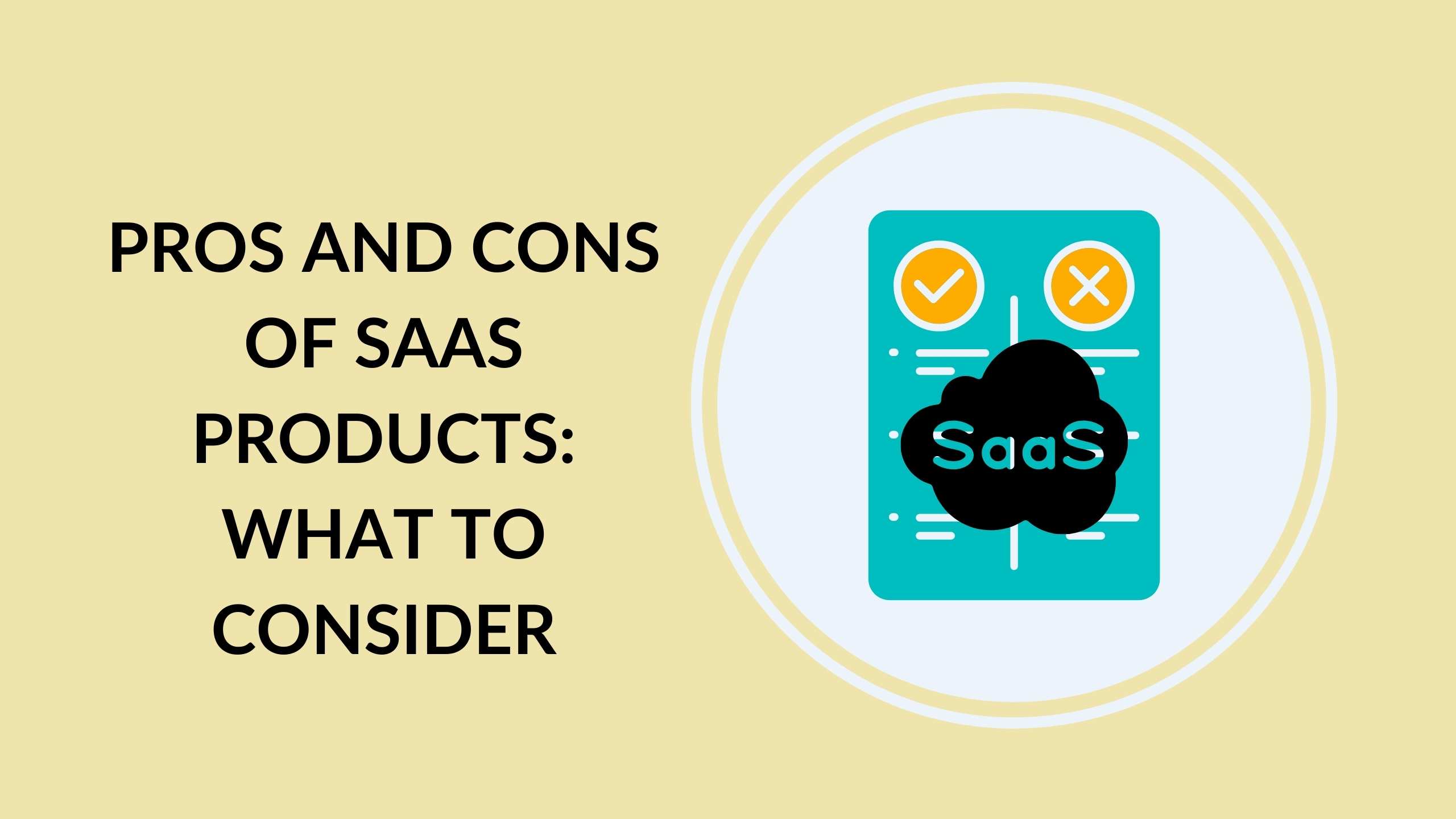Pros and Cons of SaaS Products: What to Consider


Pros and Cons of SaaS Products: What to Consider
Software as a Service (SaaS) has revolutionized the way businesses access and utilize software applications. While SaaS products offer numerous benefits, they also come with certain drawbacks. This article provides an in-depth exploration of the pros and cons of SaaS products, helping businesses make informed decisions when considering these solutions. Additionally, we’ll highlight relevant SaaS products to provide practical insights into the landscape.
Unveiling the Pros and Cons of SaaS Products
What are the Pros and Cons of SaaS Products?
Understanding the advantages and disadvantages of SaaS products is crucial for businesses evaluating their software solutions. Let’s delve into the key factors to consider:
Pros of SaaS Products
1. Cost-Efficiency
SaaS products typically operate on a subscription model, reducing the need for upfront investments in hardware and software. This cost-efficiency makes SaaS solutions accessible to businesses of all sizes.
2. Scalability and Flexibility
SaaS allows organizations to scale their software usage based on their evolving needs. This flexibility enables businesses to adapt their software solutions to growth or changes in requirements.
3. Automatic Updates and Maintenance
SaaS providers handle software updates and maintenance tasks, ensuring that businesses always operate on the latest version. This eliminates the burden of manual updates and guarantees access to new features and improvements.
4. Accessibility Anywhere, Anytime
Being cloud-based, SaaS products enable users to access applications from anywhere with an internet connection. This accessibility fosters remote work capabilities, contributing to increased productivity and collaboration.
5. Rapid Deployment
SaaS solutions can be implemented quickly without the need for extensive setup processes. This rapid deployment allows businesses to integrate new software applications swiftly.
Cons of SaaS Products
1. Dependency on Internet Connection
SaaS products rely on an internet connection. Any disruptions or downtime in internet services can impact the accessibility and performance of the software.
2. Limited Customization Options
While SaaS products offer a range of features, customization options may be limited compared to on-premises solutions. Businesses with highly specific or unique requirements may find this restrictive.
3. Data Security Concerns
Storing data in the cloud raises concerns about data security. Although SaaS providers implement security measures, businesses must carefully consider data protection and compliance.
4. Subscription Costs Over Time
While the subscription model can be cost-efficient initially, the cumulative subscription costs over an extended period might surpass the upfront costs of perpetual licenses.
5. Potential for Downtime
SaaS products are susceptible to service outages. Businesses should assess the provider’s uptime guarantees and have contingency plans in place to mitigate the impact of potential downtime.
Exploring Relevant SaaS Products
To provide practical insights into the pros and cons of SaaS products, let’s explore some relevant products in the market:
Conclusion
In conclusion, the decision to adopt SaaS products involves weighing the pros and cons to align with the specific needs and goals of a business. Cost-efficiency, scalability, and accessibility are key advantages, while concerns about data security, customization limitations, and potential downtime are important considerations.
As businesses evaluate SaaS solutions, exploring products like Salesforce, Microsoft 365, Zoom, Slack, and HubSpot can provide valuable insights into the practical applications and nuances of SaaS products.





